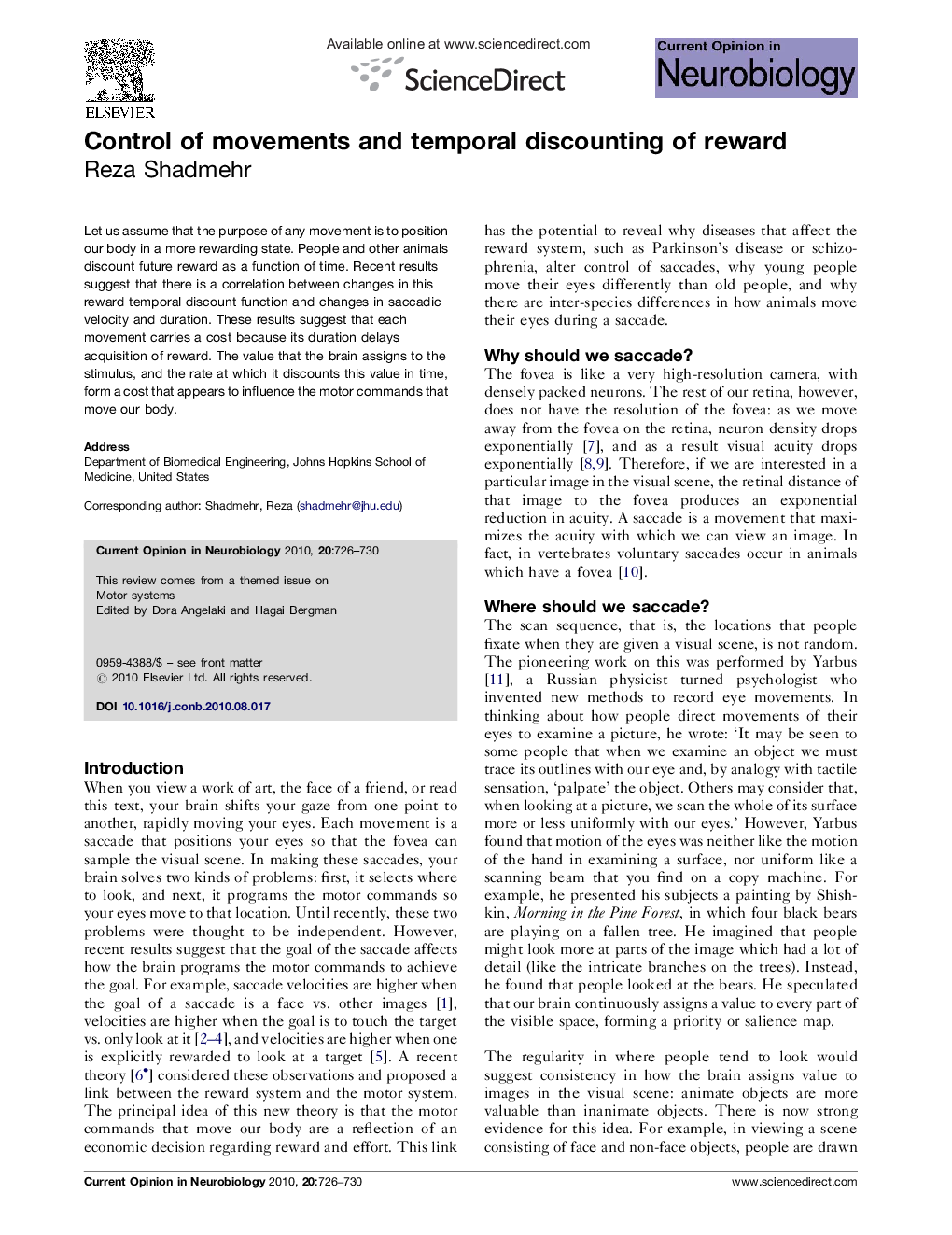| Article ID | Journal | Published Year | Pages | File Type |
|---|---|---|---|---|
| 4334576 | Current Opinion in Neurobiology | 2010 | 5 Pages |
Abstract
Let us assume that the purpose of any movement is to position our body in a more rewarding state. People and other animals discount future reward as a function of time. Recent results suggest that there is a correlation between changes in this reward temporal discount function and changes in saccadic velocity and duration. These results suggest that each movement carries a cost because its duration delays acquisition of reward. The value that the brain assigns to the stimulus, and the rate at which it discounts this value in time, form a cost that appears to influence the motor commands that move our body.
Related Topics
Life Sciences
Neuroscience
Neuroscience (General)
Authors
Reza Shadmehr,
